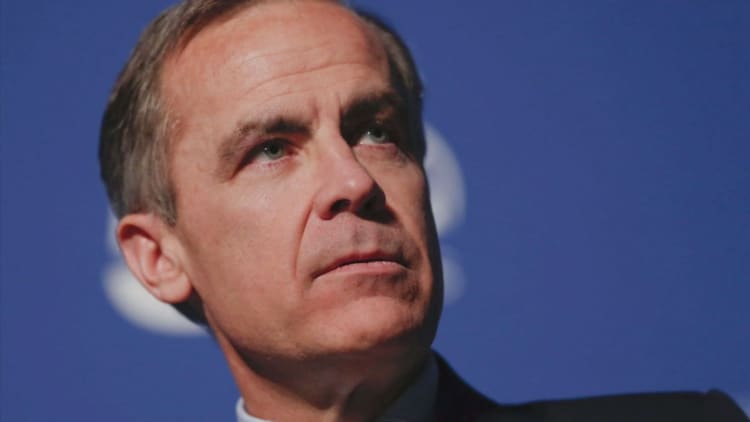
The Bank of England's governor has defended central banks' moves to spend trillions of dollars on monetary stimulus, saying the lack of accompanying structural fixes were to blame for the failure to revive global growth.
Governor Mark Carney told a gathering Group of 20 central bankers and finance ministers in Shanghai on Friday that global growth was a "serial disappointment" of sometimes spectacular proportion, which he attributed to "weaker potential supply growth in virtually all G20 economies."
"This underperformance is a reminder that demand stimulus on its own can do little to counteract long-term forces of demographic change and productivity growth," he said, according to a text of his speech released by the BOE.
Monetary stimulus did have value, he said, in that it supported economic activity while parts of the economy de-levered, and it bought time for structural changes, such as shifting activity from declining to growing sectors. It also bought time to fix the "fault lines" in financial markets that helped cause the financial crisis, as well as to build a more robust banking system.

Instead, Carney said, "global growth has disappointed because the innovation and ambition of global monetary policy has not been matched by structural measures."
"In most advanced economies, difficult structural reforms have been deferred," he added. "In parallel, in a number of emerging market economies, the post-crisis period was marked by credit booms reinforced by foreign capital inflows, which are now brutally reversing.
Carney's pointed comments came in the wake of criticism from the International Monetary Fund (IMF) that the G20 - the club of leading developed and emerging nations - had failed to deliver on promises to kickstart growth in the wake of the global financial crisis.
In a report released Wednesday, the IMF said that just under half of the growth-focused structural reforms G20 countries had promised in 2014 to introduce had been fully implemented. At the time the reforms were agreed, the goal was to raise potential G20 gross domestic product by 2.1 percent by 2018. At the current rate, the boost to growth will be just 0.8 percent, the IMF said.
Several large countries in the group had managed only "below-average implementation," according to the IMF report, and most reforms said to be in progress were subject to a number of implementation risks.
In January, the IMF cut its forecast for 2016 global economic growth to 3.4 percent from 3.6 percent, and has warned that another downgrade was likely in April.
The IMF said on Wednesday that it wanted the G20 to come up with a coordinated stimulus program to support the economy.
But despite the IMF's push for action at the Shanghai meeting, some policymakers cautioned against such expectations.
German Finance Minister Wolfgang Schaeuble told the meeting on Friday that monetary and fiscal policy in Europe had been exhausted.
Schaeuble did say, however, that it was necessary to continue with financial regulation, implement structural reforms, and to make markets less volatile.


